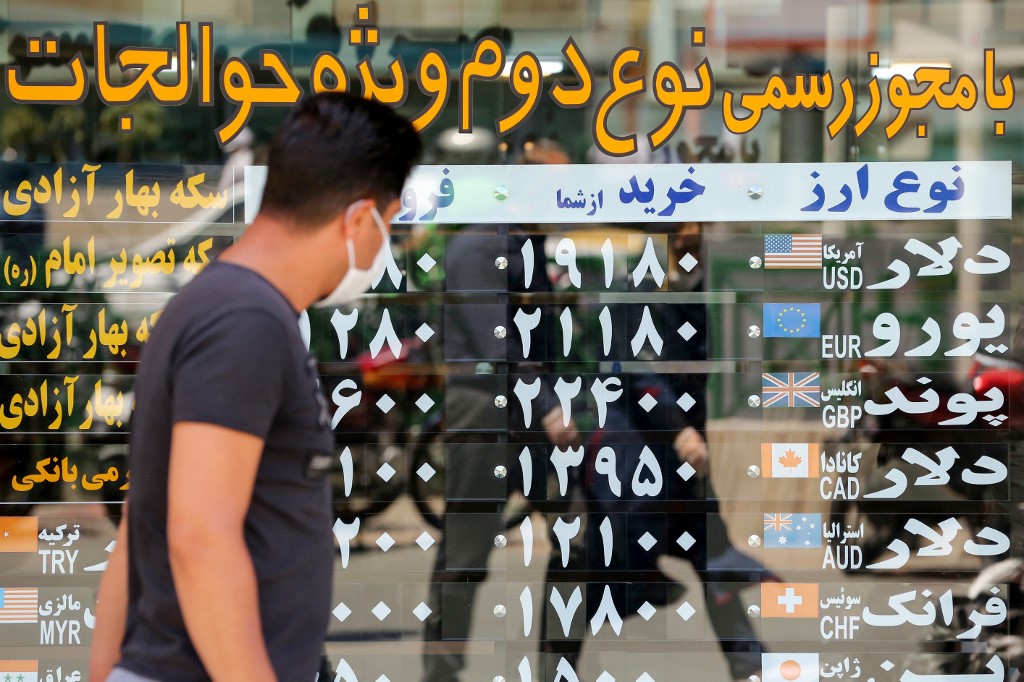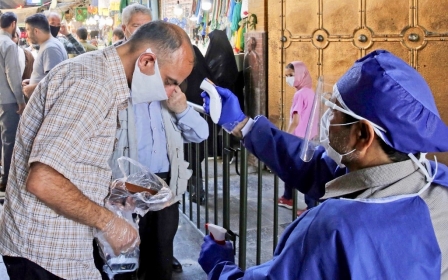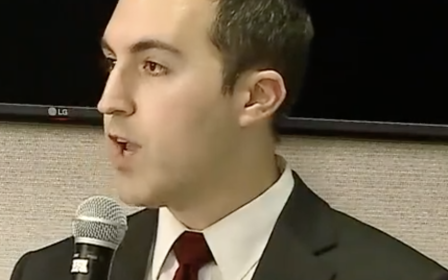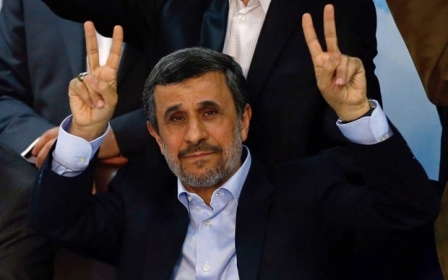Iranian press review: Former allies turn against Ahmadinejad over alleged US links
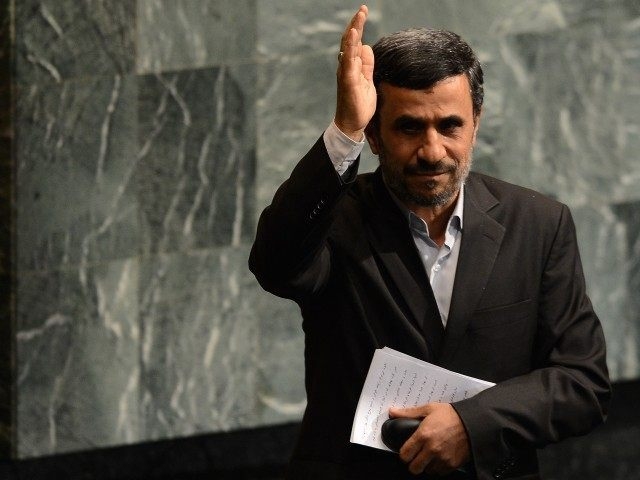
Former allies want Ahmadinejad behind bars
Former Iranian president Mahmoud Ahmadinejad has come under scrutiny for alleged links to the United States as well as mismanagement of the country’s economy during his presidency, Iranian media reported.
Iran’s conservative politicians, who had previously supported Ahmadinejad to stay in power following the disputed presidential elections in 2009, have recently called for him to be tried, according to the Arman daily.
The push for Ahmadinejad’s trial was first declared by hardline analyst Saadollah Zarei, who accused Ahmadinejad of having secret relations with the United States.
Zarei - who is known to have close ties to Iran’s supreme leader and Islamic Revolutionary Guard Corps (IRGC) - did not provide any proof for his claims but mentioned Ahmadinejad’s attempts to reestablish political relations with Washington in 2011 and 2012, Arman daily reported.
New MEE newsletter: Jerusalem Dispatch
Sign up to get the latest insights and analysis on Israel-Palestine, alongside Turkey Unpacked and other MEE newsletters
Zarei’s accusations came after Ahmadinejad attacked a 25-year $400bn potential agreement between Iran and China on economic and political cooperation, describing it as a suspicious, secretive deal that the people of Iran would not approve of.
'During the eight years that Ahmadinejad was in office, Iran had the highest income from oil exports…with that money we could have secured our country’s future for years'
- Ahmad Karimi Esfahani
Following reports that the Iranian cabinet had given its approval to a draft of the landmark plan in June, critics argued that Tehran had agreed to a "colonial" deal that would allow China to plunder the country's natural resources and oil reserves.
The proposed partnership, also opposed by the United States, would present a major blow to President Donald Trump’s administration, which has instigated a “maximum pressure” policy against Tehran since the US withdrew from the Joint Comprehensive Plan of Action (JCPOA), also known as the Iran nuclear deal, in 2018.
Meanwhile, conservative businessman Ahmad Karimi Esfahani has called for Ahmadinejad to be tried for his government’s mismanagement of Iran’s economy between 2005 and 2013.
“During the eight years that Ahmadinejad was in office, Iran had the highest income from oil exports…with that money we could have secured our country’s future for years,” he was quoted by Khabar Online as saying.
“But no one has rebuked this person who had inflicted so much damage to the country. The judiciary system should go after these misdeeds and prevent it from happening again,” said Karimi Esfahani, who is a senior member of the hardline organisation Front of Followers of the Line of the Imam and the Leader.
Since tensions between Ahmadinejad and Iran’s supreme leader in 2011, conservatives and far-right IRGC members have gradually turned their backs on the former president.
After leaving office, two of Ahmadinejad’s main confidents Esfandiar Rahim-Mashaei and Hamid Baghaei were tried by Iran’s conservative judiciary and sentenced to jail terms.
Fake companies set up with identities of the poor
The identities of Iran’s poor have been bought by businesses and used to set up fictitious companies for illegal activities in the black market, the official news agency IRNA reported.
According to IRNA, well-connected business people pay little money for the birth certificates of the destitute - including the homeless, street vendors and drug addicts - and registered fake companies in their names.
In several corruption cases this technique was used for tax evasion, money laundering, illegal import and export, and receiving bank loans.
However, this is not the first time that officials in Tehran have warned about such practice.
Last year, during the trial of managers of the private Sarmayeh Bank, it was revealed that the bank managers had registered five companies in the name of drug addicts and homeless people. In a single day, these companies had received loans equal to over 1,100bn Iranian rial, about $10m on the open market at the time.
Last year the total size of the underground economy was equal to 37 percent of Iran’s official economy, while the tax fraud exceeded 510,000bn rials (about $2.5bn) in the country, local media reported.
In recent weeks, however, another type of of identity purchase emerged in Iran when the government set a 2,000-euro (around $2,370) daily limit for the purchase of foreign currency, after the Iranian rial experienced another sharp drop in value.
Private exchange centres and dealers started paying ordinary citizens between $10 and $15 to use their IDs to purchase foreign currency above the official allowance.
According to Reuters, the Iranian currency has lost nearly 48 percent of its value in 2020, as a drop in oil prices and a slump in the global economy have deepened the economic crisis in the country, which also has the highest death toll in the Middle East from the coronavirus pandemic.
Rise in petty crime amid Iran’s economic crisis
Iran has seen a sharp rise in petty crime as the country struggles with the economic impacts of the coronavirus pandemic and the US sanctions.
In the spring of 2020, more than half of the arrests carried out by the Iranian capital’s police were related to petty thieves with no previous criminal record, local media reported.
Tehran’s police chief, Brigadier General Alireza Lotfi, told reporters that during a nationwide lockdown burglaries were reduced by 14 percent in the capital. However, the number of car break-ins and cellphone snatchings increased during the same period.
According to Lotfi, over 50 percent of those arrested for such offences were not professional criminals and had committed a crime for the first time.
The head of Iran Association of Social Workers, Seyed Hassan Mousavi Chalek, warned that more harm would be inflicted on Iranian society if the country’s economic crisis worsened.
“The current rise in petty crimes will not come as a surprise to us if we have a look at Iran’s inflation rate and the misery index since 2018,” Mousavi Chalek was quoted by the Arman daily as saying.
The global outbreak of coronavirus has only compounded the Islamic Republic’s economic misery.
Earlier this week Iran, the worst-hit in the Middle East, was accused of a cover up as documents claimed the country’s Covid-19 death toll was three times higher than the official figures of 14,405 released by the health ministry.
Iran rail project in Afghanistan
Iran has completed 30 kilometres of rail lines that connect the Iranian city of Khan with Herat, Afghanistan’s third largest city, the country’s deputy transport minister announced.
Kheirollah Khademi told the ILNA news agency that the Iranian government had fully funded and designed the Khan-Herat transportation route, and would carry out the construction of the railways, which would be operational by November 2021.
According to Tehran, this project would help Afghanistan export its mineral stones. However, foreign policy experts believe that the project is another step in Iran’s strategy to expand its soft power in Afghanistan amid increasing tension with the United States.
The news about the railway project has resurfaced in Farsi media amid a war of words between the US special representative for Afghanistan Zalmay Khalilzad and the Iranian embassy in Kabul.
Khalizad, who in February signed a peace deal with the Taliban, has accused Iran of not showing enough support to intra-Afghan negotiations.
“They [Iranians] are not interested in a peace process in Afghanistan and prefer that the US leaves the country in a war,” he was quoted by Afghan News as saying.
In a statement, the Iranian embassy to Afghanistan rejected Khalilzad’s claims and reaffirmed Iran's support for peace and stability in Afghanistan, suggesting that peace would only return to the country if Afghans themselves negotiated it.
*The Iranian press review is a digest of reports that are not independently verified as accurate by Middle East Eye.
Middle East Eye delivers independent and unrivalled coverage and analysis of the Middle East, North Africa and beyond. To learn more about republishing this content and the associated fees, please fill out this form. More about MEE can be found here.


